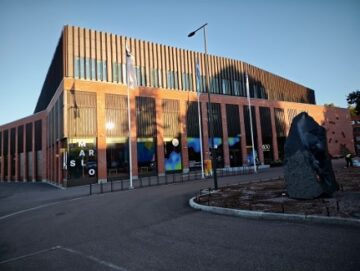Action Research in Practice: Reflections from the Inforte Workshop at Aalto
Sep 22 to 23, 2025, Boyang Zhang, as the Sensor Research in Dining Flow Project, had the opportunity to visit Aalto University for the Inforte Action Research Workshop, a gathering that brought together researchers and practitioners who share a passion for applying research directly in real-world contexts.
The workshop was led by Professor Robert Davison (City University of Hong Kong), a long-time advocate for Action Research (AR). He reminded us that AR is about working alongside stakeholders to solve pressing problems while generating new knowledge.
Presenting the Dining Flow Case
During the workshop, Boyang shared insights from the Dining Flow project at the University of Turku, where we applied Action Research to a very practical challenge: forecasting diner flows in institutional restaurants.
Like many campus restaurants, ours faced issues of over-preparing food (leading to waste) or under-preparing (leading to stress and inefficiency). Through iterative AR cycles, we deployed sensors, machine learning models (Prophet, XGBoost), and staff dashboards. The process followed the classic AR cycle:
– Diagnosis – identifying forecasting errors and food waste,
– Action – deploying new forecasting tools,
– Reflection – gathering staff feedback and measuring accuracy,
– Iteration – refining models and dashboards.
Thee diversity of Action Research applications became particularly evident, extending from logistics at FedEx in China to healthcare and education. What unites these cases is the recognition that collaboration between researchers and practitioners is indispensable, as meaningful outcomes emerge when both groups co-create solutions and share ownership of interventions. In Action Research, theoretical frameworks such as Work Systems Theory, Punctuated Equilibrium Theory, or Transactive Memory provide essential guidance for interpreting complex challenges and designing effective responses. Reflection ensures that interventions could provide practical solutions for organizational issues; at the same time generate insights that contribute to broader scholarly and practical communities.
The principles of Action Research can be illustrated in several distinct domains. In institutional restaurant diner forecasting, Action Research cycles can integrate sensor data, machine learning models, and staff feedback to reduce food waste and improve operational planning. Within music study and pedagogy, Action Research may be applied to challenges such as managing noise levels in rehearsal or classroom environments. By incorporating feedback loops from both staff and students, new solutions, such as spatial reconfigurations, adaptive digital tools, or real-time acoustic monitoring, can be joint developed to enhance learning experiences and creative outcomes. In the field of sustainability transitions, Action Research fosters collaboration between researchers, local communities, stakeholders, and policymakers to co-create socio-technical solutions that address pressing environmental challenges while remaining sensitive to local cultures and practices. The Action Research could provide new pathways for theoretically grounded, publishable contributions across organization communication, public relation, tourism and hospitality.

This learning journey reinforced the value of embedding research directly into practice. Forecasting diners at restaurants require intersection of sustainability, staff wellbeing, and digital transformation in the food sector. Sharing our work at Aalto was a reminder that real change comes from iterative, collaborative cycles of learning and doing.

